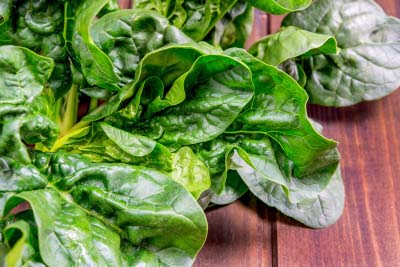
Back in June we shared news on the new Healthy Eating Pyramid and the five food groups we should all aim to eat every day to keep our hearts healthy and our waistline in check. But in designing our ultimate wholefood diet, it is just as important that we spend some time selecting foods that keep our brain happy.
The Conversation – a favourite online read of ours – recently published a list of seven key nutrients that may have a positive influence on brain health and the foods that they are present in. Here’s a summary of nutrients and foods to consider when planning your next shopping list:
- B vitamins and folate
Vitamin B helps produce a range of brain chemicals, and we also need it for metabolic and cellular processes. Interestingly, a folate (B9) deficiency has been reported in people who respond poorly to antidepressants and in depressed populations. You can find your dose of folate in leafy green vegetables, wholegrains, legumes and nuts. Eggs, cheese, dairy and unprocessed meats are also rich in vitamin B.
- Minerals
Minerals – particularly magnesium, iron and zinc – are essential for neurological function. Magnesium is involved in many of our brain chemistry reactions and a deficiency in it has been linked to symptoms of depression and anxiety. Foods high in magnesium include dark leafy greens, soybeans, nuts, legumes, and wholegrains.
Iron helps transport oxygen to the brain and is also prominent in many neurological activities. Like magnesium, studies have found that a deficiency in iron is also linked to depression and anxiety symptoms. Iron occurs in unprocessed meats and organ meats, grains, nuts and leafy greens (think Popeye and his spinach!).
Zinc is involved in many of our brain’s chemistry reactions and also supports memory formation and cognitive stability. Zinc deficiency has been linked with an increase in depressive symptoms, and there is also evidence emerging for the role that zinc supplementation has in improving depressed moods. Zinc can be found in lean meats, wholegrains, oysters, nuts and pumpkin seeds.
- Omega-3
Omega-3 fatty acids play an important role in keeping proper neuronal function and structure. They also help to control vital properties of the inflammatory pathway in our body. Studies have found that omega-3 supplements can be helpful when it comes to dealing with symptoms of depression, bipolar and post-traumatic stress disorder. Naturally you can find omega-3 fats in oily fish, nuts, seeds and oysters.
- Vitamin D
Vitamin D is vital for brain development and a deficiency in it has been linked to increased depressive symptoms. Just 15 minutes a day in the sun can synthesize your daily Vitamin D intake, but make sure you are sun smart at all times. You can also get a dose of Vitamin D in oily fish, fortified milk and UVB exposed mushrooms.
- Amino acids
Amino acids are compounds that act as building blocks for proteins. They are also needed to make neurotransmitters, which are chemicals in the brain that either excite or inhibit our neurons. You can get amino acid supplements, but they can also be found in protein sources, and are most prominent in seafood, meats, eggs, nuts and legumes.
- Microbiotics
When the bacteria in our gut is less than optimal it can result in inflammatory responses that can have a negative effect on the nervous system and brain function, and may also affect our mental health. A diet rich in foods that nourish beneficial bacteria and reduce microbial species can encourage a balanced microfloral environment. Try eating fermented foods like yoghurt, tempeh and kefir. Pectin-rich foods such as the skin of fruit is also beneficial.
- Plant-based antioxidants
An increase in oxidative stress and damage to brain cells has been associated with a number of mental disorders, including depression. Enter antioxidants – they bind to damaging free radicals, rendering them harmless and providing a natural way to combat excessive oxidation. Fruits like blueberries, blackberries, raspberries and goji berries all contain a stack of antioxidant compounds. Mangoes, garlic, onion, kale, green and black tea are also good sources of antioxidants.
Jerome Sarris, Senior Research Fellow at University of Melbourne and author of The Conversation article concluded: “There is now enough research evidence to show the importance of nutrients for mental as well as physical well-being. A discussion about diet and nutrition should be the starting point in conversations about mental health, just as it is for physical health.”
 Call Us Today
Call Us Today



